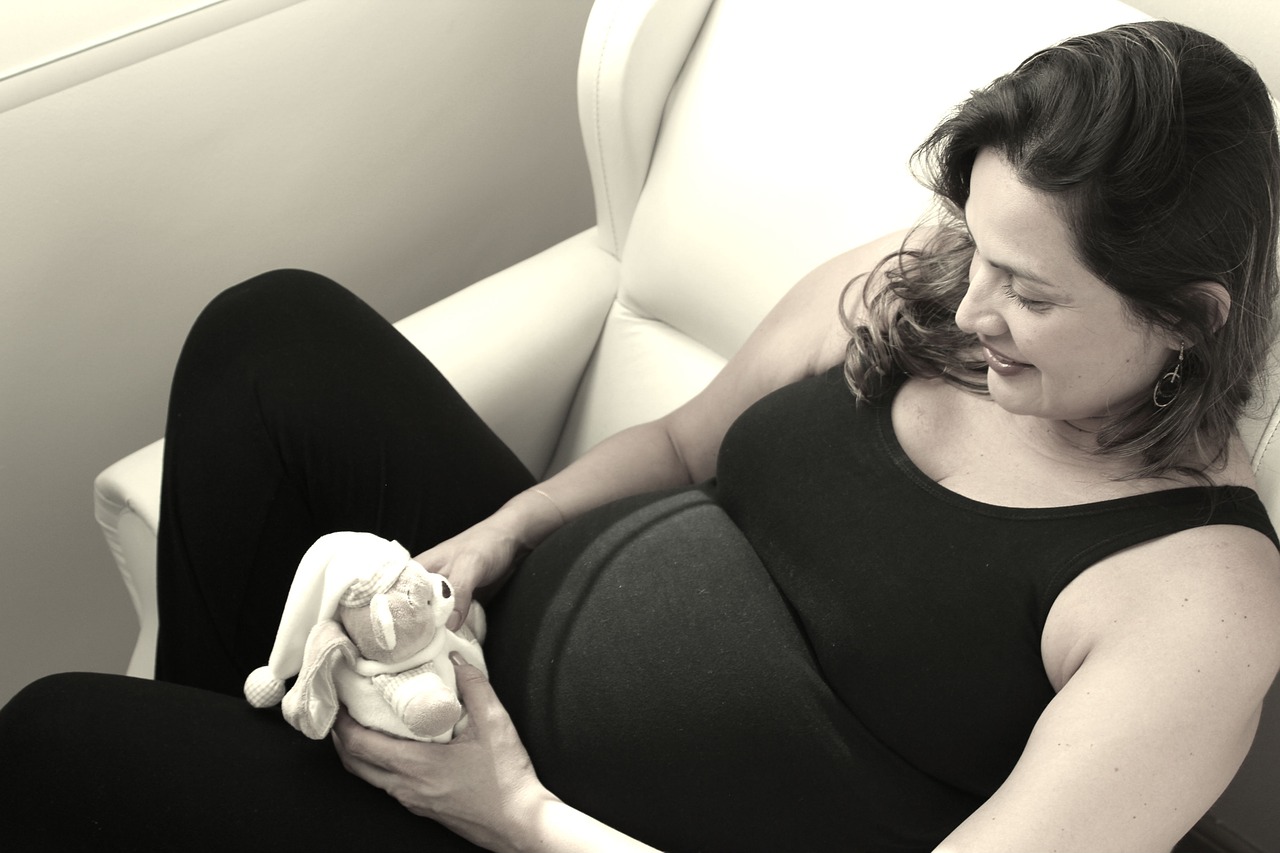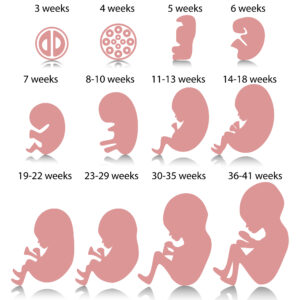More than 88% of pregnant women have trouble falling asleep during pregnancy. This is normal, considering the hormonal and physical changes that you go through during this stage.
However, if this difficulty sleeping well is accompanied by other symptoms and, above all, negatively affects your daily life, then it may be gestational insomnia, which could be risky for the pregnancy.
In this article I explain how to identify this disorder, what consequences it can have, and most importantly how to combat it.
WHAT IS INSOMNIA DURING PREGNANCY?
Sleeping poorly is not the same as suffering from insomnia. In other words, it is normal to have some difficulty falling asleep during pregnancy, since you think that your body is going through many transformations and a hormonal revolution, to which are added the worries that make you think and worry more than usual.
However, insomnia is considered when sleep problems concur with a series of symptoms that, in addition, have a correlation during the day.
These are some of the signs that may indicate that you are suffering from insomnia:
- Difficulty getting to sleep.
- Frequent awakenings during the night and difficulty getting back to sleep.
- Wake up early.
- Unrefreshing sleep.
- This situation is repeated at least three times a week.
Inefficient rest has consequences during the day:
- Constant fatigue and excessive sleepiness.
- Anxiety and depression.
- Dysphoria (sadness, irritability, restlessness or anguish).
- Difficulty concentrating or paying attention to something.
Important- If you suffer from any of these symptoms, it is best to
see your doctor as soon as possible, so that he or she can assess how to proceed to reverse the situation.
WHY DOES INSOMNIA OCCUR IN PREGNANCY?
Insomnia in pregnancy can be caused by different factors:
- Nausea and vomiting. They appear during the first trimester and in some cases can extend until part of the second.
- Gastroesophageal reflux. Consequence of the longer and heavier digestions caused by the hormones of pregnancy (they slow down all the systems) and the little space in the stomach.
- Need to urinate more often. The increase in visits to the bathroom is caused by the increase in renal flow, which consequently increases urine production, and by the pressure on the bladder caused by the growth of the uterus.
- Back pains. The body has to get used to the increase in the abdomen and the curvature of the spine, which increases muscle discomfort.
- Cramps in feet and legs. They occur because the uterus puts pressure on the blood vessels that carry blood back to the heart from the legs.
- Restless Leg Syndrome. Tingling and burning sensation in the legs that causes an unavoidable need to move them when at rest.
- Fetal movements in late pregnancy, when the baby has almost no room to move.
- During pregnancy, changes occur in the mucosa of the airways due, in large part, to increased blood flow that obstruct the airways and are the cause of snoring.
- Decreased deep sleep. In pregnancy , the duration of the REM phase of sleep (deep sleep) is reduced, which makes the quality of rest worse.
- Volume and weight of the belly. By increasing in volume, the uterus compresses organs such as the stomach and bladder, which causes discomfort and more frequent awakenings.
- Braxton Hicks contractions . These preparatory contractions are milder than labor contractions, but they are still uncomfortable and can even wake you up at night.
- Fears and worries. At the beginning of pregnancy, it is common for fears and worries about pregnancy and the health of the fetus to make it difficult to rest well. Towards the end of pregnancy, the concern is usually related to the time of delivery. This can even cause nightmares.
WHAT CONSEQUENCES CAN INSOMNIA HAVE IN PREGNANCY?
According to a study, 64% of pregnant women suffer from insomnia during the third trimester (44% in the first and 46% in the second), and this lack of sleep increases the risk to suffer from health problems. In this study, in addition, the researchers’ concern about the little attention paid by the health system to this issue is expressed.
These are some of the possible consequences of suffering from insomnia during pregnancy:
Gestational diabetes mellitus . Diabetes that appears in pregnancy in women who have never had it before.
Depression (including postpartum depression ).
Arterial hypertension and preeclampsia. They can trigger serious complications for both mother and baby.
Premature labor.
Unplanned cesarean section.
Placental abruption. It occurs when the placenta partially or completely separates from the inner wall of the uterus before delivery.
Intrauterine growth retardation. The growth rate of the fetus is slowed and it has a low birth weight.
TIPS TO COMBAT INSOMNIA IN PREGNANCY
Since medications for insomnia are discouraged at any stage of pregnancy and there are no harmless natural remedies (except for some infusions or milk, which can help you fall asleep, but must always be prescribed by your doctor ), there are a series of tips that you can follow to improve the quality of your rest during pregnancy:
Have an early dinner (don’t eat just before bedtime), not a large quantity and avoid greasy, acidic or highly seasoned foods. If you have reflux, you can lie down with your trunk slightly elevated.
Stay hydrated throughout the day, but try not to drink too much in the late afternoon and evening. Also remember to go to the bathroom before going to bed.
Eat a healthy and balanced diet and take all the nutritional supplements that your doctor recommends. Lack of potassium and calcium, for example, are one of the causes of muscle cramps.
Perform moderate physical activity daily (if there is no medical contraindication). Swimming, walking or yoga, for example, are good options. It is also important that you stretch and maintain good posture.
Maintain a regular sleep schedule. Try to go to bed and wake up at the same time every day.
Do relaxation exercises. If you are very nervous, worried or stressed about the arrival of labor, it can help you to relax by taking a hot bath before bed, meditating, listening to calm music or reading.
Have a glass of hot milk with honey before going to bed. It is a harmless home remedy that can help you fall asleep a little faster. Milk and honey contain tryptophan and essential amino acids that increase the production of sleep-inducing melatonin.
WHAT IS THE BEST SLEEPING POSITION DURING PREGNANCY?
One of the keys to sleeping better during pregnancy , especially in the final stage, is to find the correct posture. Which one is the best? Sideways.
It is also recommended that it be on the left side, since in this way the uterus does not press on the inferior vena cava and improves circulation to the heart, which favors the blood supply of the fetus, the uterus and the kidneys.
To relieve lumbar pressure and achieve good alignment of the spine, it is advisable to place a pillow between the legs and another under the abdomen . And if you suffer from circulation problems, your feet and ankles swell or you have leg cramps, another recommendation is to add some cushions to support your legs, so that they rest in a higher position.
On the other hand, if at any time you have reflux problems, until the discomfort is relieved you can sleep in a semi-sitting position.
CONCLUSIONS
Although having some difficulty falling asleep during pregnancy is normal, keep in mind that if this develops into insomnia, it can affect the pregnancy.
There is no need to worry excessively, because it is counterproductive, but it is advisable to consult a doctor.
You can also follow some tips to relieve it and get a little better rest. Not eating too much, being physically active during the day, limiting your fluid intake at night or carrying out a relaxing routine can help you rest better.
And if what keeps you from sleeping are worries about the pregnancy, try to consult your doctor with all your doubts to stay calmer.




Average Rating